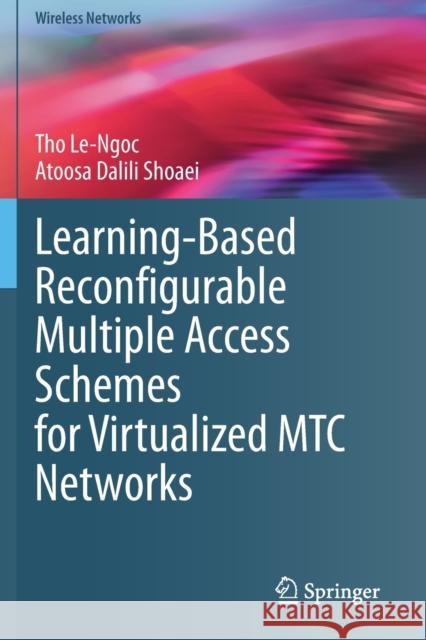Learning-Based Reconfigurable Multiple Access Schemes for Virtualized Mtc Networks » książka
topmenu
Learning-Based Reconfigurable Multiple Access Schemes for Virtualized Mtc Networks
ISBN-13: 9783030603847 / Angielski / Miękka / 2021 / 204 str.
Learning-Based Reconfigurable Multiple Access Schemes for Virtualized Mtc Networks
ISBN-13: 9783030603847 / Angielski / Miękka / 2021 / 204 str.
cena 403,47
(netto: 384,26 VAT: 5%)
Najniższa cena z 30 dni: 385,52
(netto: 384,26 VAT: 5%)
Najniższa cena z 30 dni: 385,52
Termin realizacji zamówienia:
ok. 16-18 dni roboczych.
ok. 16-18 dni roboczych.
Darmowa dostawa!
This book assists readers with understanding the key aspects, problems and solutions related to the design of proper Multiple Access Schemes for MTC (Machine-Type Communications) and IoT applications in 5G-and-beyond wireless networks. An overview of MTC applications and their traffic features are also provided. In addition, it presents a comprehensive review of MTC access schemes including orthogonal multiple access schemes (OMA), non-orthogonal multiple access schemes (NOMA), massive MIMO-based schemes and fast uplink grant approaches. It also proposes efficient and reconfigurable access schemes deploying machine learning and optimization techniques to address the main requirements of MTC networks. This book discusses potential research directions to further enhance the performance of MTC access schemes.
Machine-type communications are expected to account for the dominant share of the traffic in future wireless networks. While in traditional wireless networks, designed for human-type communications, the focus is on support of large packet sizes in downlink, machine-type communication systems deal with heavy uplink traffic. This is due to the nature of the tasks performed by machine-type communication devices, which is mainly reporting measured data or a detected event. Furthermore, in these networks, using the virtualization framework, the network infrastructure can be shared between different applications for which providing isolation is of high importance. To support these unique characteristics of machine-type communications, proper access schemes need to be developed, which is the focus of this book.
This book benefits advanced-level students studying computer science and electrical engineering as a secondary textbook and researchers working in this field. Engineers and practitioners interested in the challenges and practical solutions of integrating MTC in the cloud radio access network of 5G-and-beyond cellular systems will want to purchase this book as well.











